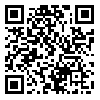
Scientific-Research Quarterly Journal of
Medical Science

year 9, Issue 16 (9-2024)
KJMS 2024, 9(16): 1-8 |
Back to browse issues page
Download citation:
BibTeX | RIS | EndNote | Medlars | ProCite | Reference Manager | RefWorks
Send citation to:



BibTeX | RIS | EndNote | Medlars | ProCite | Reference Manager | RefWorks
Send citation to:
Ahmadi N A, Ebrahimi M A. Investigation the changes of oral cavity in COVID-19 patients visiting the Afghan Japan Infectious Diseases Hospital in 1400. KJMS 2024; 9 (16) :1-8
URL: http://kjms.knu.edu.af/article-1-31-en.html
URL: http://kjms.knu.edu.af/article-1-31-en.html
Department of Prosthodontics, Faculty of Dentistry, Khatam Al-Nabieen University, Kabul, Afghanistan
Abstract: (611 Views)
Introduction: Changes in the oral cavity due to the progression of the Covid-19 virus have been one of the problems that doctors in the Covid-19 department have faced. As a result of the progression of this disease, certain changes have been observed in the oral cavity of these patients, which include fungal diseases of the mucous surfaces of the oral cavity (mucosal ulcers and sores), dryness of the oral cavity (tonsilitis), and, fortunately, over time, these changes are decreasing with the addition of some medicines. The present study aimed to investigate the changes in the oral cavity in Covid-19 patients at the Afghan Japan Infectious Diseases Hospital (Covid-19).
Materials and Methods: This cross-sectional descriptive study was conducted at the Afghan Japan Infectious Diseases Hospital (Covid-19) from the HMIS department data (patients in bed with Covid-19 with PCR + Covid-19 test).
Results: The results of this study are as follows in both male and female genders. Out of 300 people infected with COVID-19, 52 of them experienced oral cavity changes. These changes include 35.38% dry mouth, 35.36% tonsillitis, 6.19% oral mucosal thrush, 85.3% canker sores, and 85.1% hairy tongue, which were observed in these patients.
Conclusion: With the findings of the present study, it is recommended that antifungal and oral hygiene medicines be added to the routine medicines of the person infected with oral cavity changes, and hands should be kept away from quarantined people, and hands should be washed regularly with detergents and disinfectants, and masks should be used.
Materials and Methods: This cross-sectional descriptive study was conducted at the Afghan Japan Infectious Diseases Hospital (Covid-19) from the HMIS department data (patients in bed with Covid-19 with PCR + Covid-19 test).
Results: The results of this study are as follows in both male and female genders. Out of 300 people infected with COVID-19, 52 of them experienced oral cavity changes. These changes include 35.38% dry mouth, 35.36% tonsillitis, 6.19% oral mucosal thrush, 85.3% canker sores, and 85.1% hairy tongue, which were observed in these patients.
Conclusion: With the findings of the present study, it is recommended that antifungal and oral hygiene medicines be added to the routine medicines of the person infected with oral cavity changes, and hands should be kept away from quarantined people, and hands should be washed regularly with detergents and disinfectants, and masks should be used.
Send email to the article author
| Rights and permissions | |
 |
This work is licensed under a Creative Commons Attribution-NonCommercial 4.0 International License. |



